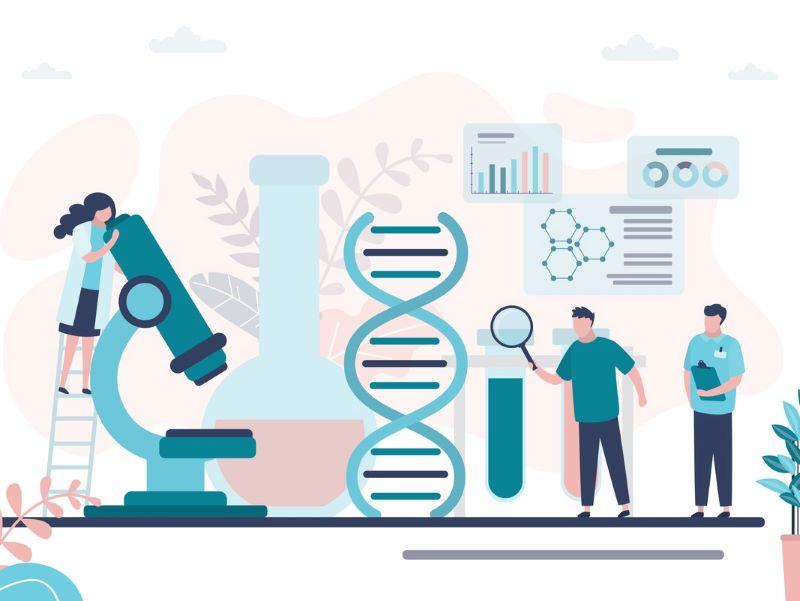
Creating a bioscience toolkit for first year students

You may also like
Popular resources
In the past couple of years pre- and post-pandemic, university teaching staff have found that some students lack the core skills and knowledge necessary to help them succeed in bioscience courses. As a result, students’ confidence and motivation are reduced. This is likely related to students not gaining sufficient knowledge from their previous education, not being aware of additional support available within the university or to teaching staff making incorrect assumptions about students’ ability and understanding of threshold concepts. The core skills and knowledge lacking include:
- numerical skills
- critical-thinking skills
- Excel skills
- independent learning skills
- knowledge of statistical software
- knowledge of lab techniques and practical skills.
In response, teaching staff should identify where gaps lie and invest time in creating constructive sessions to overcome this. We have found the following initiatives helpful in supporting a smoother student transition to university-level bioscience.
New bioscience resource page: set up a website for new or prospective first-year students with a useful reading list to prepare for the course, websites to access to build knowledge, and professional bodies to aid research, such as the physiological society. You could also include useful programmes and databases to be aware of such as SPSS and PubMed, and list skills requirements such as a working knowledge of Excel. This site informs students early on about what is expected of them during a bioscience course, and the areas in which they will develop during university.
- Are STEM admissions processes hindering our diversity efforts?
- Taking challenging courses requiring step-by-step instruction online
- Core data science skills: filling the gaps with community developed workshops
Self-reflection e-portfolio: this exercise is based on a grid table with course modules listed in the left margin and the transferable or graduate skills listed along the top. Students are then encouraged to insert their marks for each relevant skill for each assignment. This helps them to see which skills they have developed during their first year and where they may need further support. Personal tutors should offer guidance by overseeing this exercise and marking it.
Academic refresher sessions
- Library skill-up: each year host a session where new students receive support on conducting a literature search, referencing and avoiding plagiarism.
- MyMathLab: maths refresher courses can be organised in numerous ways. We offer online maths exercises via software we developed with Pearson called MyMathLab. This offers eight to 10 exercises for first-year students and a further set, including statistics in the second year. Calculations and data used are linked to the lab practicals delivered in the practical and transferable skills module.
- Building technical skills: expose students to a rich variety of practical experiments early in the bioscience course to increase their competency in the laboratory. This should help build their confidence and cultivate their research prowess.
- Promoting employability: our bioscience course is accredited by the Institute of Biomedical Science and the Royal Society of Biology – whatever your course accreditations, try to keep the long-term goal of an interesting career at the forefront of students’ minds. Group exercises focused on possible career paths in first year can facilitate this.
Going forward, you may wish to consider:
- Incorporating diagnostics tests to assess skills at the beginning of first year to see where students are starting from, and using the same test at the end of the year to track progress.
- Promoting what courses you offer via Linkedin Learning so students can access them online to skill up. We keep this service available to them for two years after graduation.
- If resources and time allow, organise a skills week focused on developing skills or create a skills library with small, chunked videos to watch and learn.
We have found a combination of all the initiatives described above effective in encouraging and supporting students in reaching the threshold they need to succeed in biosciences. There are, however, a few students who may require further support, and it is important to identify and flag these students as quickly as possible for early intervention. It is also important to consider your threshold entry requirements and subjects for a bioscience course to ensure students start and finish strong, enabling them to flourish during and after completing their course.
Chinedu Agwu is a lecturer at Brunel University medical school. At the time of writing this resource, she was a teaching fellow in biosciences at the University of Hertfordshire.
This advice is based on a presentation given at a HUBS-funded workshop, Fundamental Biosciences, hosted by the University of East Anglia.
If you found this interesting and want advice and insight from academics and university staff delivered direct to your inbox each week, sign up for the THE Campus newsletter.


